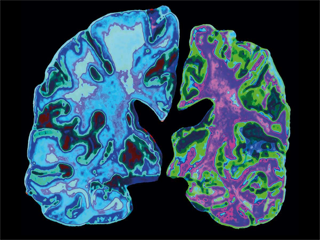As per a new study led by School of Public Health researcher, Johns Hopkins Bloomberg; the development of dementia, often caused by Alzheimer's disease, is caused by abnormal blood levels with dozens of proteins that can detect potential diseases. So far, it has not been known that proteins are associated with dementia, which suggests new targets for preventive therapies. The results are based on new analyzes of blood samples from more than 10,000 young and old-aged people which were collected and stored decades ago in larger studies as part of an ongoing study. Out of 38 proteins found in blood, 16 seemed to predict the risk of Alzheimer's disease two decades in advance. Although most of these risk markers are just incidental by-products of the slow disease process that leads to Alzheimer's disease, the analysis indicated high levels of the protein SVEP1 as a possible causal contribution to this disease process.
This is the most comprehensive analysis till date, and sheds light on several biological pathways linked to Alzheimer's, says study director Josef Coresh, MD, PhD, MHS, George W. at Bloomberg School. Some of these proteins discovered were just indicators that disease might occur, but a subset could be causally relevant, which is exciting because it increases the ability to target these proteins with future treatments.
It is estimated that more than six million Americans have Alzheimer's, the most common form of dementia, which is an irreversible fatal disease that leads to loss of cognitive and physical functions. Despite decades of intense study, there are no treatments that can slow down this disease process. So, scientists widely believe that the best time to treat Alzheimer's is before symptoms of dementia develop in human body. Amyloid beta protein clusters scientists have shown that imaging the brain of plaques and amyloid beta or tau levels in the blood or cerebrospinal fluid has some value in predicting Alzheimer's disease years in advance. But humans have tens of thousands of other different proteins in their cells and blood, and the techniques of measuring many of them from a single small sample of blood have advanced in recent years. A thorough analysis using these techniques could reveal other originators to Alzheimer's disease, hopefully.



